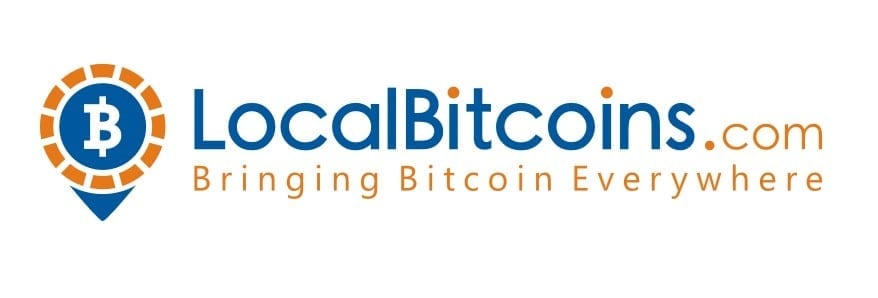
Disclaimer: This interview was originally conducted in spanish and appeared in Territorio Bitcoin, we’re reproducing it will full consent from its original authors, Javier Picos and Óscar Domínguez. Contact information for the original authors is included at the end of the article.
The interview was conducted locally in Spain.
Q: Can you clarify for us how the Fraud Department at LocalBitcoins works?
As you can imagine, in any area that deals with online payments and especially within Bitcoin-related platforms, fraud is rampant. Since users exchange Bitcoins for fiat via several payment methods we see a lot of fraud. There are stolen bank accounts, Paypal is also a big example of the risk involved with conducting transactions with people that you don’t know. We try to deal with these issues by staying one step ahead of the fraudster who would take advantage of our users.
Q: Your platform even includes a “Dispute” system.
That’s basically the site’s main selling point. Any LocalBitcoins user can opt between multiple partners for conducting their exchanges without the necessity of individual insurance. You can even opt to meet in person and not have to deposit Bitcoins in our wallet at all, which is very interesting, but there’s also the more secure option (for which we charge 1%) which is our escrow service that locks the funds once an offer is made until the seller confirms the buyer fulfilled his payment.
In case a dispute arises within that transaction, either user can initiate a dispute, which is when the admins step into it: we look over the entire deal, the communication that was exchanged between users, request payment receipts and once we render a judgment, the dispute is settled.
Q: Focusing on security, an important subject for the average Bitcoin user, do you consider LocalBitcoins offers enough measures in this area for their users to trust you?
Regarding account security, the first thing we try to stress upon users with our blog entries is that Bitcoin is a new transactional system that essentially makes you, your own bank. We advise our users not to use LocalBitcoins as a storage platform. We don’t want to be a bank. In fact, our way of thinking is the complete opposite of how banks operate in today’s world.
The first security measure is never to store all of your Bitcoins on an online platform, save them on your personal wallet. In our platform, when you first create an account, you can opt for two-factor authentication, which is something the majority of banks offer and in conjunction with your password, generates a series of codes that change each time you access your account. Each time you log in ,the system will ask you for a different code that you can obtain either through printing them or using the Google authenticator.
Our second security measure is the Login Guard. When you activate this option it recognizes the browser you use to access your account and if you try to log in from a separate one, it will send a code to your e-mail in order to authenticate it’s you.
Q: Are there any other security measures you’d like to talk about?
One of the last measures we implemented is a symbol that appears on the login page. It’s like an abstract image that “recognizes” your IP address. This serves to prevent and identify phishing sites; you can always identify LocalBitcoins since that IP-generated image is unique to every account.
Q: Do you think LocalBitcoins is a good place for Bitcoin “newbies” to start buying and selling?
I think so. Every day I receive a bunch of messages from people that just registered requesting more information. A user can quickly learn how LocalBitcoins works, once you make an account, it’s all very visual and easy to use. For example, we have a lot of new users in South Africa, where there are a lot of dialects, but it’s been very easy to teach them how to use our platform.
Seeing the increment of users from that locale, we’ve realized we must be doing something well.
Q: LocalBitcoin acknowledges it’s still in an initial phase, but its proposed goals are ambitious, such as wanting to “bring Bitcoin exchange and economy to every city in the world”.
At LocalBitcoins you can use any payment method in any country, which is something other platforms can’t say. We’re lucky in that we just deal with Bitcoins, which allows us to operate all over the globe while avoiding legal issues.
Other platforms focus more on getting users to keep Bitcoins in their online wallets by giving out incentives, which makes us think they’re acting like banks.
Q: You say you have over 1,000 new users per day, where do most of them come from?
Our biggest market is the United Kingdom but it also depends on news about each economy. When there were problems in Russia we had a lot of new users from there and a while ago there were several articles about Bitcoin in Spain, which bought in an influx of Spanish users. It really responds to the situations of each country. Now, and I hope I’m not recalling a wrong number, we have over 700,000 users in total.
Q: Why did LocalBitcoins set up shop in Helsinki? Is it because it’s one of the most startup friendly capitals in the world?
That’s true, but our main motive was the banks. When you go to a bank somewhere else and say that all your earnings come from Bitcoins, that bank won’t let you open an account. Findland is very Bitcoin-friendly when it comes to regulation, very similar to what we have here in Spain. Now, in Finland the Government doesn’t hound companies that deal in technological innovation, they’re very flexible in that aspect.
It is true that taxes are very high but Jeremias Kangas, the founder, decided it was worth it to stay there.
Q: Jeremias Kangas is the founder and CEO of LocalBitcoins, how would you describe him?
He’s a very particular person due to his way of thinking and conducting business; he’s very flexible with the whole company and doesn’t like typical corporate figures such as managerial roles.
What I like most about him is his way of conducting business: he’s very independent and doesn’t like to depend on third parties, he’s a great entrepreneur.
Q: It’s curious, he even puts up a photo of himself in LocalBitcoins, which is very rare in the Bitcoin world.
It’s true that a lot of people choose to remain anonymous in this community but Jeremias knows this business depends on trust. When we enter into the Bitcoin territory we see that a lot of people lose trust in banking institutions. Trust is directly handed down to the person with whom you’re conducting an exchange and in our case, to the platform you’re using to power that exchange.
I think Jeremias understand that it’s essential for our users to know they’re part of a secure service.
Q: How do you see the crypto currency penetration here now that you’re focusing in the Spanish market?
Without claiming to be an expert in this particular subject, my impression is that there’s a problem regarding the technological knowledge of users. Bitcoin is not yet at a place where I can say to my mother “Mum, this is pretty easy to understand”, no, for my mother it wouldn’t be easy at all.
I’m not saying there’s a lack of technological know-how in Spain, in fact, there’s a lot of development going on here, but when it comes to the end-user we need to get out there and inform the people properly about Bitcoins, we need more people spreading the word in Spain.
Q: From your vantage point, what do you think about the future of Bitcoin?
There are millions of theories and visions about the future of Bitcoin. Right now it’s an investment, it’s true, but Bitcoin is the future for the services industry. However when it comes to the industrial sector, big companies or Governments, I have a hard time picturing how Bitcoin could integrate. I can’t imagine a State choosing Bitcoin as its currency.
As for me, I’d just love to be able to pay my landlord in Bitcoin.
You can find “Territorio Bitcoin” here and contact the authors of this interview via: territoriobitcoin@gmail.com







